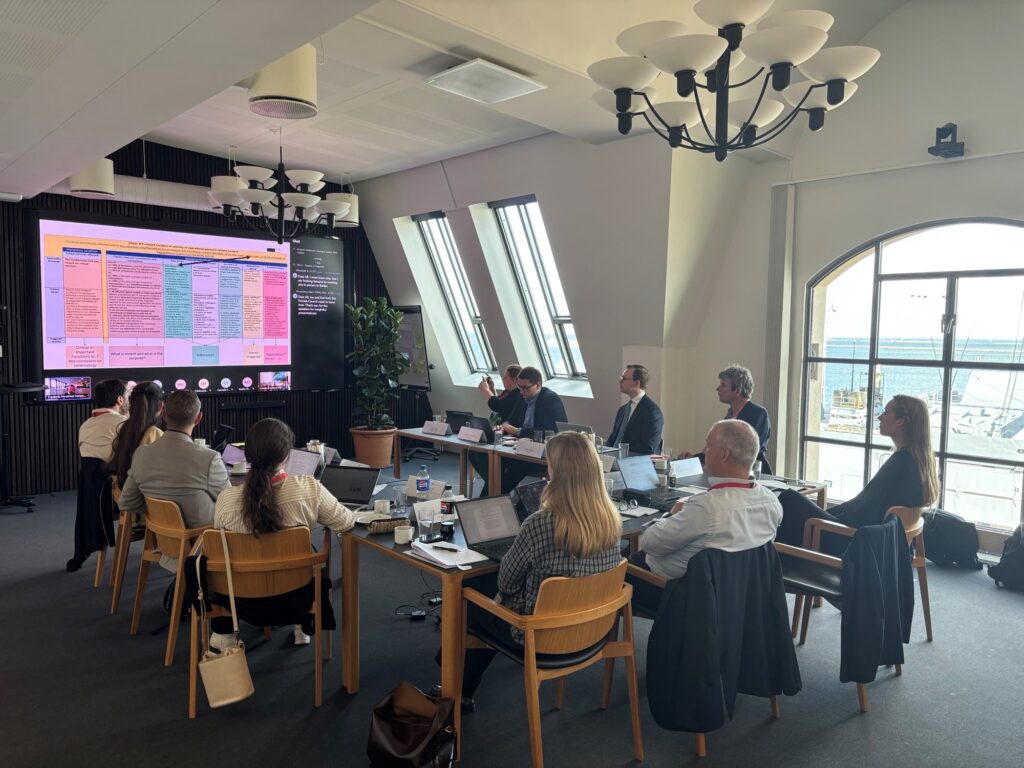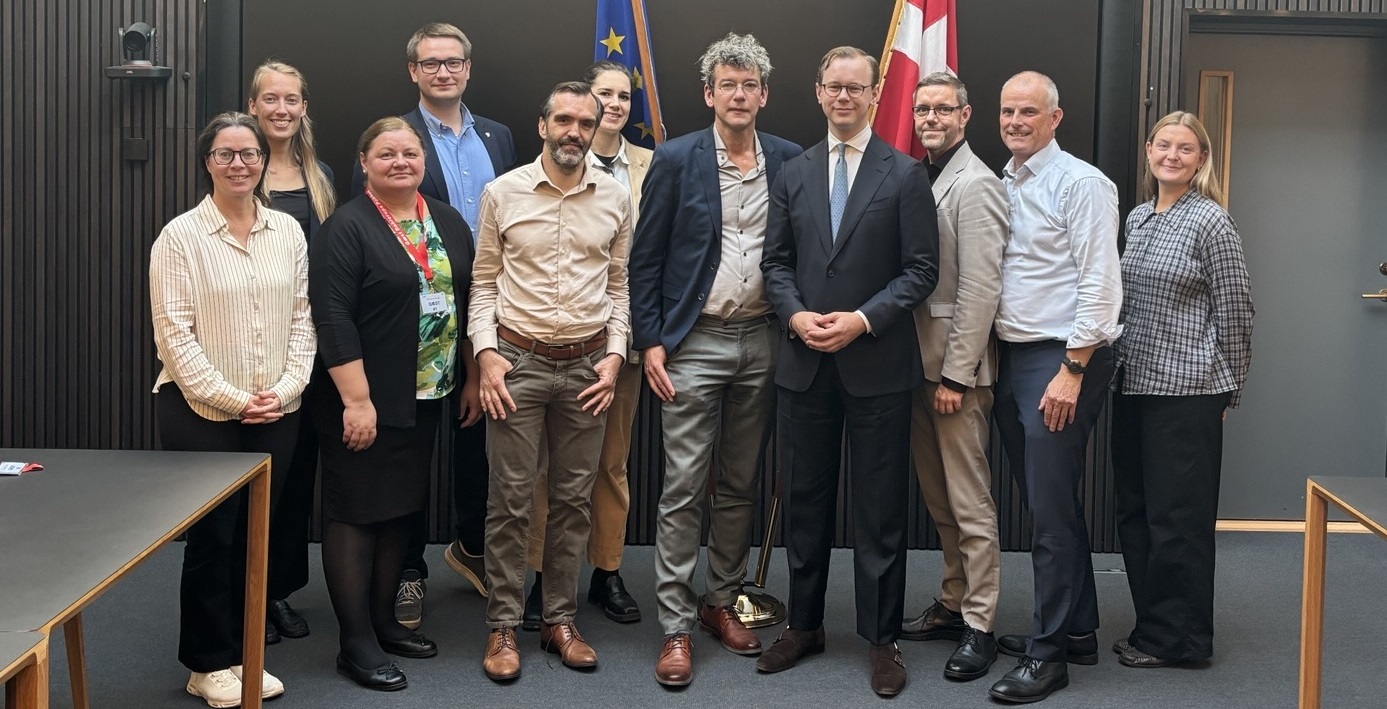Summer came and went, and RegWatchEurope kicked off the autumn season with a combined workshop and Directors’ meeting on 22–23 September 2025. The workshop put the spotlight on pressing EU regulatory topics and drew on initiatives previously discussed by RegWatchEurope.
Workshop: “The use of Level 2 and Level 3 EU regulation and follow-up on conducted implementation dialogues”
The workshop explored different angles of EU legislation through three different sessions. Each session featured both presentations and time for discussions amongst presenters and members, which seems to have become the preferred form for the workshops during the Danish Presidency.
Session I: Follow-up on the First Implementation Dialogues
The first session focused on the new implementation dialogues introduced by the European Commission as part of its efforts to strengthen the implementation phase of EU law, and to boost European competitiveness by seeking feedback from stakeholders. Gabriela Tschirkova, European Commission, Cabinet of Commissioner Dombrovskis, and Piotr Nowak, Secretariat-General, Implementation Support, outlined how these dialogues bring together a broad group of stakeholders striving for inclusivity.
Key questions addressed how stakeholders are selected, whether future legislation or mainly existing law is discussed (with current focus on already implemented acts), and the extent to which Implementation Dialogues can help shape policy going forward. The takeaways specifically highlighted the benefits of engaging directly with practitioners on their real-world experiences and the current focus on gathering feedback after regulations are in force, rather than in anticipation of future transposition.
Session II: The Use of Level 2 and 3 EU Regulation – The DORA Example
The second session provided an in-depth look at the application of Level 2 and Level 3 regulatory instruments, drawing on the Digital Operational Resilience Act (DORA) as a practical example. Mattias Levin and Boris Augustinov Petru from DG FISMA offered valuable insights into the use of regulatory tools—both in deciding to delegate legislation to Level 2 and 3 acts, and in the drafting by relevant agencies.
A key topic of interest for the RegWatchEurope members was understanding the criteria for choosing Level 2 and 3 regulations, and when which path is taken. It was noted that most Level 2 regulation are developed during the negotiation of the Level 1 regulation, often as part of compromise solutions between stakeholders and authorities. Technical rules are typically delegated to secondary legislation to ensure clarity and to address complex details.

Discussion particularly focused on when impact assessments are required for delegated acts—these are generally only carried out if a significant impact is foreseen. The RegWatchEurope members were keen to hear more about how the Commission determines what constitutes “significant impact,” and how such consultations around impact assessments are conducted in practice, with specific reference to DORA’s experience.
Session III: A Business-Oriented Perspective on Level 2 and 3 Regulation
The final session shifted to the “on-the-ground” business impact of Level 2 and 3 regulations. Mette Stürup, Finance Denmark, and Frederik Herskind Hansen, Danske Bank, highlighted the need for clear mandates in the primary legislation (Level 1), cautioning against overly “soft” regulation at subsequent levels. They underlined how lack of clarity or insufficient detail at Level 1 regulation can result in uncertainty, increased administrative burdens, and practical challenges for those tasked with implementation the regulation in the financial sector.
Directors’ Meeting
The Director’s Meeting held the following day addressed a variety of RegWatchEurope topics. The Danish Presidency gave an update on the Danish Presidency of the EU Council and discussed RWE participation in the upcoming conference for Directors and Experts of Better Regulation (DEBR) held in Copenhagen in October. The secretariats were also presented with the plans for the German Presidency of RegWatchEurope in 2026 – what an exciting year to come!

